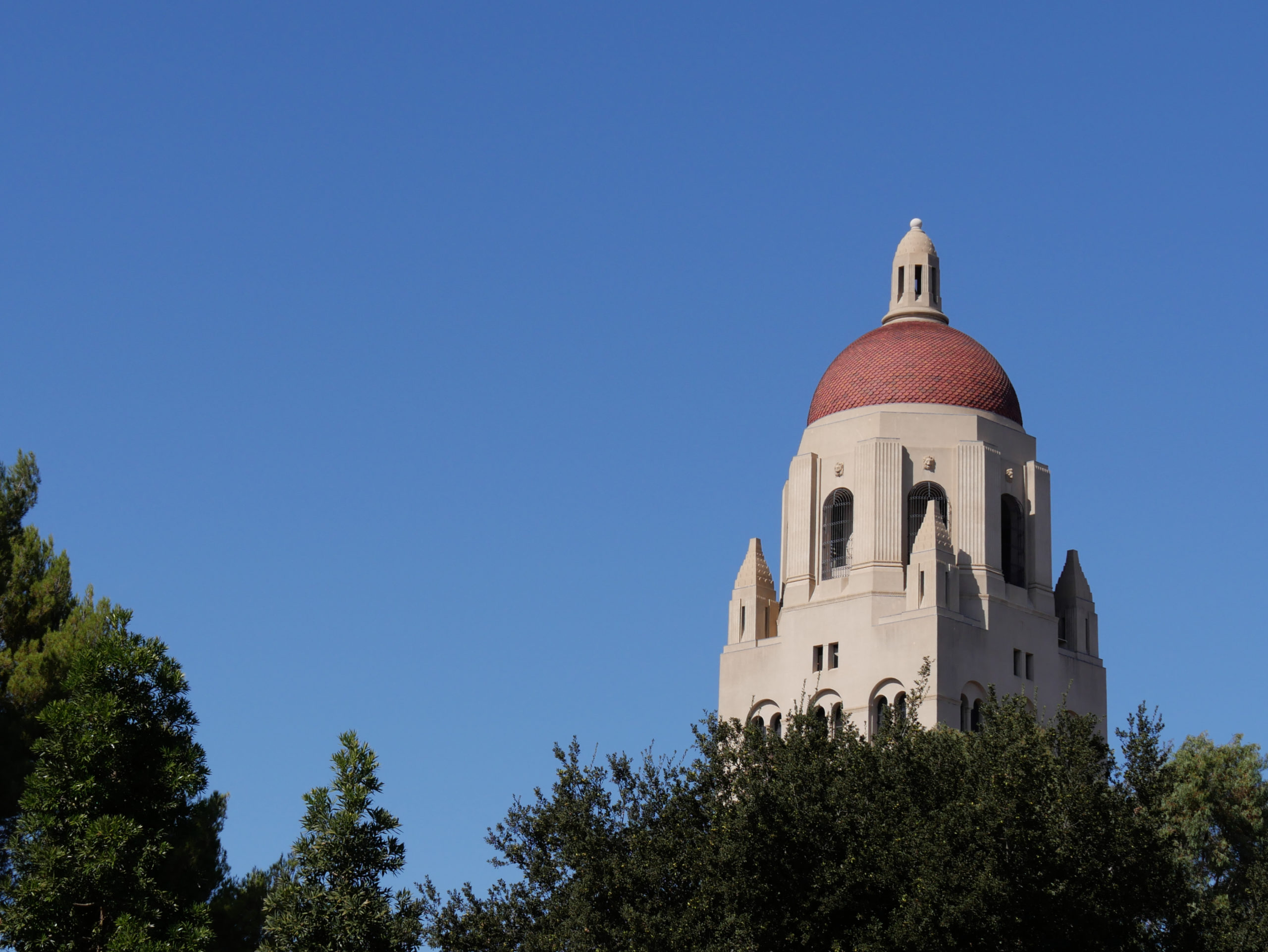As the 2024 presidential campaigns enter their last month, voters across the nation are deciding where to cast their vote.
Through debates, rallies and millions of dollars in advertisements, the two major party nominees, former President Donald Trump and Vice President Kamala Harris, have worked to persuade undecided voters. However, according to political science experts at Stanford, those efforts won’t have much effect because many voters have already decided who they will support.
“It’s not like an election where you have two fresh faces,” said political science Professor Morris Fiorina. “Most people had their minds made up when this whole thing started.”
“I’ve known for a while who I was going to vote for,” said Colin Weis ’28, who interned at a congressional district office. Weis turned to the Democratic Party as he felt it would “produce the most electable candidate against Trump.”
Alondra Martinez ’26, another Harris-supporter and a political science peer advisor, said she “never questioned who I was going to vote for” in November.
Even after President Joe Biden stepped down as the Democratic Party candidate in July and Harris took his place, there was little change in the polls, due to the polarization that has grown between political parties, said political science Professor Bruce Cain.
“Loyalty within a party was never as high as this,” Cain said. In previous presidential elections, individuals voted more based on the candidate instead of the political party. These past elections saw many voters who “were registered Democrats, but voting for the other side” and vice versa, Cain said.
Andrew Hong ’25 has already cast his ballot for the presidential election and always knew he would support the Democratic Party.
“I’ve always been very certain I was not going to support the Republican ticket,” said Hong, who worked in a data analytics firm focusing on electing Democrats. “ I made up my mind pretty shortly after I learned that it was going to be Kamala Harris to replace Biden as the Democratic nominee.”
Although high rates of political polarization can explain why the presidential debate had minimal impact on swaying voter opinion, the debate was still important because it allowed the Harris campaign to draw in more volunteers, creating more support within the Democratic Party.
Cain said personal connections between voters can help persuade hesitant voters more effectively than media ads or messages from the candidate themself. He believes that increased engagement within the Democratic voter base is a large reason why Harris is now ahead by an average of three points as of Oct. 1, according to The Economist.
Before Biden dropped out of the race, the support behind the Democratic Party was a fraction of what it is now, according to Larry Diamond ’74 M.A. ’78 Ph.D. ’80, a senior fellow at the Hoover Institution and the Mosbacher Senior Fellow in Global Democracy at the Freeman Spogli Institute for International Studies. In a previous Daily article, Diamond said “the Democrats have gone from having about a 20% chance of winning to perhaps having a slightly better-than-even chance of winning,” due to the “momentum and enthusiasm” that Harris’ candidacy has gathered.
Independent voters’ opinions also shifted slightly following the Sept. 10 presidential debate, Cain said, noting that independent voters typically “don’t pay attention to the issues as much as the most engaged Democrats or Republicans and when they do, they have a more mixed set of issue positions.”
Instead, many independent voters tend to focus more on a candidate’s personal qualities which, Cain said, became a focus of the presidential debates.
The debate “highlighted a lot of the personal qualities people had forgotten about what was problematic about the Trump presidency,” Cain said, which he believes explains why voters viewed Harris more favorably than Trump after Sept. 10.
Weis also echoed Cain and Fiorina’s thoughts, adding that the presidential debate didn’t affect him and other voters much.
“It didn’t move the needle much,” he said. “It felt less like a political debate and more like a characteristic debate.”
Though there’s not much new information left for candidates to use to sway voters, Fiorina said she thinks the candidates will still “try to press whatever buttons they think will work.” They will try, in particular, to convince remaining undecided voters in key battleground states in this election: Pennsylvania, Wisconsin, North Carolina, Nevada, Michigan, Georgia and Arizona.
According to Fiorina, Trump hasn’t properly leveraged his campaign in these final days. Instead of emphasizing the issues where he has popular opinions, such as fracking and immigration, he’s “basically throwing the election away” by focusing on the parts of himself that people don’t seem to like, he said.
“If your enemy is self-destructing, don’t get in his way,” Fiorina said. He added that Harris’ proper strategy is “what she’s doing: just let Trump keep saying things and hope that enough people will be turned off.”
While most voters’ minds have been made up for quite some time already, according to experts, the election can still sway in any direction due to how close the race is.
“I don’t think either candidate is perfect,” Martinez said. “but we only have two options with a race this big.”
Voters will see the outcomes of these campaign efforts on Election Day on Tuesday, Nov. 5.
